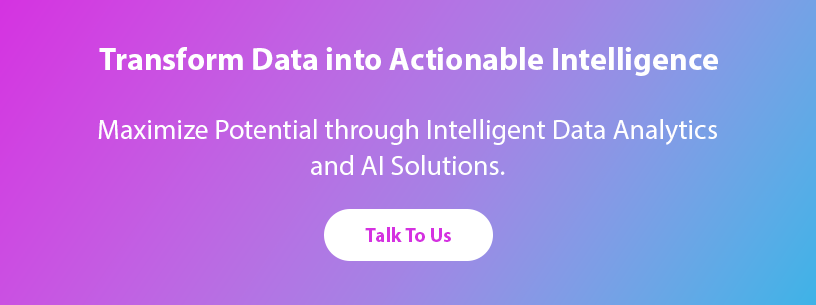Introduction
In the rapidly evolving landscape of marketing, the emergence of generative AI has sparked numerous discussions and debates. Countless articles have been written on the topic, exploring the impact of AI in various industries, including marketing. However, this article aims to break new ground by providing a unique and comprehensive perspective on how generative AI can augment human expertise in the realm of marketing. By delving deeper into the collaborative potential of generative AI, we uncover insights that can empower marketers to embrace this transformative technology with confidence and creativity.
Enhancing creativity and innovation with AI-powered content creation
Generative AI empowers marketers by expanding their creative horizons. By leveraging massive amounts of data, AI algorithms can generate fresh and innovative ideas, uncovering patterns and insights that might have eluded human marketers. This collaborative process between human marketers and AI sparks new concepts, enabling the creation of compelling content, campaigns, and strategies that resonate with target audiences. AI-powered content creation tools like ChatGPT, GPT-3, and Copy.ai assist in generating high-quality text for blog posts, social media content, email marketing, and more. Additionally, tools such as DALL-E and DeepArt.io can create unique and visually appealing images for marketing materials through image generation.
The power of personalization and machine learning in marketing
One of the key strengths of generative AI lies in its capacity to analyze vast amounts of customer data and generate personalized experiences at scale. In this article, we explore how generative AI can assist marketers in crafting tailored messaging, dynamic content, and personalized recommendations, ultimately creating meaningful connections with customers. By augmenting human expertise, generative AI empowers marketers to deliver highly relevant and engaging experiences that drive conversion rates and foster brand loyalty. Marketers can leverage AI-driven recommendation engines like Amazon Personalize and Google Recommendations AI to analyze user behavior and suggest personalized products, content, and offers. Tools like Phrasee and Persado utilize generative AI to generate personalized email subject lines, ad copy, and landing page content based on customer segmentation and preferences, enabling dynamic content generation.
Amplifying creativity and design with AI
Creativity is a hallmark of successful marketing campaigns, and generative AI acts as a powerful ally in this realm. We delve into how generative AI can inspire marketers to think beyond traditional boundaries, facilitating the generation of fresh ideas, novel concepts, and innovative content. This article showcases real-world examples of how generative AI has fueled creative campaigns, enabling marketers to captivate audiences with imaginative storytelling and unique brand experiences. Tools like RunwayML and Canva utilize generative AI to assist in creating visually engaging graphics, logos, and designs. Platforms such as Lumen5 and Adobe Sensei leverage generative AI to automate video creation and editing, enabling marketers to produce engaging video content efficiently.
Optimizing campaigns with human-AI collaboration and data-driven decision-making
The true potential of generative AI emerges when it collaborates with human expertise in campaign optimization. We examine how marketers can harness the power of AI-driven insights to enhance targeting, messaging, and ad placement. By blending human intuition and creative thinking with the analytical capabilities of generative AI, marketers can fine-tune their strategies, minimize ad waste, and maximize ROI. AI algorithms, such as Prophet and AutoML, analyze historical data to provide predictive analytics, forecasting future trends, customer behavior, and market dynamics. Tools like Research.ai and Aylien utilize generative AI to analyze large volumes of text-based data, such as customer reviews and social media mentions, providing valuable insights for data-driven marketing strategies.
Streamlining processes and efficiency with intelligent automation
The collaboration between human marketers and generative AI streamlines marketing processes, boosting efficiency and productivity. AI algorithms can automate repetitive tasks, such as content generation, data analysis, and campaign optimization. This frees up valuable time for marketers to focus on higher-level strategy, creativity, and building meaningful connections with customers. The symbiotic relationship between humans and AI creates a more efficient marketing ecosystem. Tools like Sentient Ascend and Optimizely X use generative AI to automate and optimize the A/B testing process, improving website conversion rates and user experience. Generative AI algorithms, such as Dynamic Yield and Pricefx, analyze market dynamics and customer behavior to optimize pricing strategies and maximize revenue, enabling pricing optimization.
Ethics and responsibility in AI-driven marketing
As we embrace the collaborative potential of generative AI in marketing, it is crucial to address ethical considerations. Marketers must ensure AI algorithms are trained on unbiased and representative data, avoiding the perpetuation of existing biases. Transparency, accountability, and responsible use of AI are essential to maintain trust with customers and ensure fair and ethical marketing practices.
Looking ahead
The collaborative potential of generative AI in marketing is only just beginning to be realized. As technology continues to advance, marketers will increasingly rely on AI as a valuable collaborator. By embracing this partnership, marketers can tap into the vast potential of generative AI to enhance creativity, optimize performance, deliver hyper-personalization at scale, and streamline processes. However, it is essential to navigate this partnership with ethical considerations in mind. As the marketing landscape continues to evolve, the collaboration between human marketers and generative AI will undoubtedly shape the future of marketing, driving success and creating meaningful connections with customers.
Conclusion
Generative AI represents a new era in marketing, augmenting human expertise and transforming the way we approach marketing strategies. By embracing the collaborative potential of generative AI, marketers can unlock innovative ideas, achieve hyper-personalization at scale, optimize performance, and streamline processes. However, it is essential to navigate this partnership with ethical considerations in mind. As the marketing landscape continues to evolve, the collaboration between human marketers and generative AI will undoubtedly shape the future of marketing, driving success and creating meaningful connections with customers.
Generative AI tools play a crucial role in various aspects of the marketing ecosystem. Here’s a mapping of generative AI tools with different components of the marketing ecosystem:
1. Content Creation
Text Generation: Tools like ChatGPT, GPT-3, Copy.ai, and HubSpot’s content assistant can generate high-quality text for various marketing purposes.
Image Generation: Tools such as DALL-E, DeepArt.io, and Synthesia can create unique and visually appealing images and personalized videos using AI.
2. Personalization
Recommendation engines: Generative AI-powered recommendation engines like Amazon Personalize, Google Recommendations AI, and OpenAI can analyze user behavior to suggest personalized products, content, and offers.
Dynamic content generation: Tools like Phrasee, Persado, and Opentopic Inc can generate personalized email subject lines, ad copy, and landing page content based on customer segmentation and preferences.
3. Design and creativity
Graphic design: Tools like RunwayML, Canva, and Contentyze can assist in creating visually engaging graphics, logos, and designs using generative AI.
Video production: Platforms such as Lumen5, Adobe Sensei, and Skyword 360 leverage generative AI to automate video creation and editing, enabling marketers to produce engaging video content efficiently.
4. Data analysis and insights
Predictive Analytics: Generative AI algorithms like Prophet, AutoML, and Clarifai can analyze historical data to forecast future trends, customer behavior, and market dynamics.
Market Research: Tools like Research.ai, Aylien, Signum.ai can utilize generative AI to analyze large volumes of text-based data, such as customer reviews and social media mentions, providing valuable insights for marketing strategies.
5. Customer interaction and support
Chatbots and Virtual Assistants: ChatGPT, Dialogflow, IBM Watson Assistant, and Contentyze can enable the creation of conversational agents that interact with customers, answer queries, and provide personalized assistance.
Voice Assistants: Generative AI-powered voice assistants like Amazon Alexa, Google Assistant, and Siri enhance customer engagement through voice-based interactions and recommendations.
6. Optimization and testing
A/B Testing: Tools like Sentient Ascend, Optimizely X, and Marketing GPT can use generative AI to automate and optimize the A/B testing process, improving website conversion rates and user experience.
Pricing optimization: Generative AI algorithms like Dynamic Yield, Pricefx, and Commerce GPT can analyze market dynamics and customer behavior to optimize pricing strategies and maximize revenue for e-commerce platforms.
7. Social Media and Influencer Marketing
Content curation: Generative AI tools like ContentCal, Curata, and Lately help marketers discover, curate, and schedule relevant content for social media platforms.
Influencer identification: Platforms such as Traackr, Upfluence, and AspireIQ utilize generative AI to identify and analyze potential influencers for influencer marketing campaigns.
It’s important to note that the specific tools and platforms mentioned may change or evolve over time, as the field of generative AI continues to advance, and new solutions emerge to cater to the evolving needs of marketers.
Get in touch with our experts. Stay ahead of the competition with leading technology providers like Cygnet Digital.











